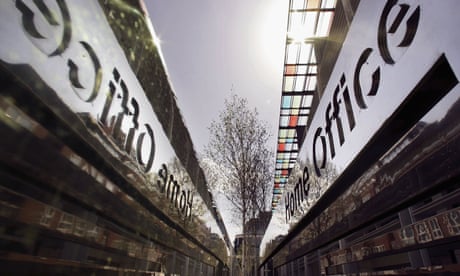- by foxnews
- 09 Mar 2025
UK government ‘hackathon’ to search for ways to use AI to cut asylum backlog
UK government ‘hackathon’ to search for ways to use AI to cut asylum backlog
- by theguardian
- 30 Apr 2023
- in technology

The Home Office plans to use artificial intelligence to reduce the asylum backlog, and is launching a three-day hackathon in the search for quicker ways to process the 138,052 undecided asylum cases.
The government is convening academics, tech experts, civil servants and business people to form 15 multidisciplinary teams tasked with brainstorming solutions to the backlog. Teams will be invited to compete to find the most innovative solutions, and will present their ideas to a panel of judges. The winners are expected to meet the prime minister, Rishi Sunak, in Downing Street for a prize-giving ceremony.
Inspired by Silicon Valley's approach to problem-solving, the hackathon will take place in London and Peterborough in May. One possible method of speeding up the processing of asylum claims, discussed in preliminary talks before the event, involves establishing whether AI can be used to transcribe and analyse the Home Office's huge existing database of thousands of hours of previous asylum interviews, to identify trends.
The sessions will "explore how natural language processing and AI could help to streamline processes used to clear the asylum backlog", officials have promised.
News of the event has triggered unease among immigration lawyers and academics, who have questioned how the use of AI can be compatible with a Home Office commitment to reminding case workers that every asylum claim has a human story behind it; all officials working in asylum processing are currently required to complete "Face Behind the Case" training to reenforce the message that they are dealing with humans and not numbers.
The Home Office's use of artificial intelligence has previously been controversial. The department was forced to scrap the use of an algorithm in making visa decisions in 2020, after campaigners identified a racist bias in the programming.
Some of those invited to attend the hackathon sessions have declined to take part, citing unease about the project or questioning whether they have the correct expertise to assist. Others have said they were "bemused" by the invitation but plan to attend. Those attending are understood to have been invited to sign non-disclosure agreements as a condition of participation.
The Home Office has tried to preempt nervousness about the involvement of AI, commenting: "The government is clear that asylum cases will always be decided by a person. The hackathon has been developed to generate new innovative ideas."
The search for a new approach comes as the Home Office struggles to fulfil a firm commitment made by Sunak to clear the asylum backlog of 92,000 legacy cases (which were lodged before immigration rules changed last July) before the end of December 2023. The rising backlog of asylum seekers waiting for a decision on their cases presents a huge problem both for the government and those people left waiting for clarity about their status. Last November the Refugee Council released figures showing that more than 40,000 had been waiting between one and three years for a decision on their claim.
The cost of accommodating a large proportion of people who are waiting for a decision in hotel rooms (around �6m a day) has become politically sensitive. Meanwhile, asylum seekers are frustrated at not being able to work or study while they are waiting for their claim to be processed.
Despite Sunak's commitment, figures released this week show that in the past three months, only 10,000 claims have been processed, suggesting that the government is unlikely to meet its target of clearing the remaining 80,000 cases unless a radical new approach is taken.
Governments have used digital tools for decades to speed up decision-making, and immigration campaigners said they would welcome any innovation that made the processing of asylum cases faster. But asylum experts questioned whether using AI was the most logical approach to clearing the backlog, when a more straightforward solution might be to increase the number of asylum case workers. Although there has been a year-on-year increase, the head count fell from 1,333 in January to 1,281 in March. Low morale and high turnover have been a constant problem.
The immigration lawyer Colin Yeo said that 98% or more of Afghans, Eritreans, Sudanese and Syrians in the backlog would be eventually be recognised as refugees, and the fastest way to eliminate about a third of the backlog would be to accept their claims immediately.
"You don't need some literally inhuman and untested AI gimmick to just get on with it and grant them status. All officials need to do is establish they are telling the truth about their nationality. This would save a huge amount of public money and let genuine refugees get on with their new lives here. Instead, ministers are wasting yet more time and resources on nonsense ideas that will go nowhere," he said.
A Home Office spokesperson said: "The government is taking action to clear the asylum backlog by doubling the number of asylum caseworkers to 2,500 and streamlining interviews and paperwork, but we need to do more. This is why we are working with data scientists from across government and the private sector to bring together the best and brightest minds to consider further innovative solutions to help clear the backlog."
- by foxnews
- descember 09, 2016
'Speaker scum' on flights sparks debate among travelers: 'This is getting out of hand'
A traveler asked social media users to weigh in on flyers who play audio aloud on their devices and don't use headphones.
read more





